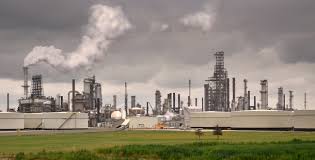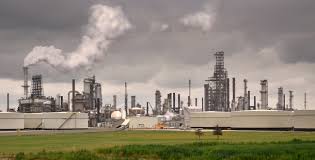
Gerardo Familiar, President of Advanced Performance Materials at Chemours, recently appeared on the Energy Evolution podcast by S&P Global Commodity Insights. He emphasized the critical role Chemours' chemistry plays in creating a sustainable future and advocated for regulatory approaches grounded in science and data.
During the podcast, Familiar discussed the unique properties of fluoropolymers and low global warming potential (GWP) fluorinated gases, highlighting their importance in ensuring safety and durability in sectors such as automotive, medical, hydrogen production, and aerospace. He used the example of water electrolyzers for hydrogen production, which rely on Chemours’ Nafion™ membranes, to illustrate his point: "If you want an electrolyzer producing hydrogen to last, it must be reliable, safe, and effective."
Familiar stressed that these materials are crucial for advancing sustainability, as they support applications that address significant challenges like climate change. "Without these materials, achieving global decarbonization and net-zero emission goals would be unattainable," he noted.
Emerging technologies, including clean energy production and sustainable solutions for data centers, heavily depend on fluoropolymers and low GWP fluorinated gases. Familiar also highlighted the need for regulatory frameworks to be informed by data and scientific research, rather than applying uniform regulations to materials with diverse characteristics. He argued that regulations should recognize the essential role of these materials in various industries and ensure their responsible production, use, and disposal.
Sustainability and responsible manufacturing are integral to Chemours' strategy. Familiar mentioned the company’s significant investments in responsible manufacturing practices, including advanced emissions control and abatement technologies, as well as comprehensive life-cycle management for their products.
As the world strives for a more sustainable and prosperous future, fluoropolymers and low GWP fluorinated gases will be indispensable.
Click here to know more.
During the podcast, Familiar discussed the unique properties of fluoropolymers and low global warming potential (GWP) fluorinated gases, highlighting their importance in ensuring safety and durability in sectors such as automotive, medical, hydrogen production, and aerospace. He used the example of water electrolyzers for hydrogen production, which rely on Chemours’ Nafion™ membranes, to illustrate his point: "If you want an electrolyzer producing hydrogen to last, it must be reliable, safe, and effective."
Familiar stressed that these materials are crucial for advancing sustainability, as they support applications that address significant challenges like climate change. "Without these materials, achieving global decarbonization and net-zero emission goals would be unattainable," he noted.
Emerging technologies, including clean energy production and sustainable solutions for data centers, heavily depend on fluoropolymers and low GWP fluorinated gases. Familiar also highlighted the need for regulatory frameworks to be informed by data and scientific research, rather than applying uniform regulations to materials with diverse characteristics. He argued that regulations should recognize the essential role of these materials in various industries and ensure their responsible production, use, and disposal.
Sustainability and responsible manufacturing are integral to Chemours' strategy. Familiar mentioned the company’s significant investments in responsible manufacturing practices, including advanced emissions control and abatement technologies, as well as comprehensive life-cycle management for their products.
As the world strives for a more sustainable and prosperous future, fluoropolymers and low GWP fluorinated gases will be indispensable.
Click here to know more.


 Gerardo Familiar on Chemours' Role in Sustainable Chemistry and Innovation
Gerardo Familiar on Chemours' Role in Sustainable Chemistry and Innovation




 Companies
Companies